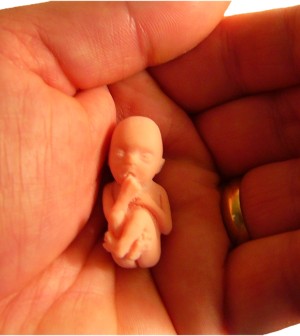- 10 Strategies to Overcome Insomnia
- Could Artificial Sweeteners Be Aging the Brain Faster?
- Techniques for Soothing Your Nervous System
- Does the Water in Your House Smell Funny? Here’s Why
- Can a Daily Dose of Apple Cider Vinegar Actually Aid Weight Loss?
- 6 Health Beverages That Can Actually Spike Your Blood Sugar
- Treatment Options for Social Anxiety Disorder
- Understanding the Connection Between Anxiety and Depression
- How Daily Prunes Can Influence Cholesterol and Inflammation
- When to Take B12 for Better Absorption and Energy
Breast Milk Makeup May Influence Child’s Later Weight, Study Says

The composition of a woman’s breast milk may help determine whether her baby will become an overweight adult, a new study suggests.
Previous research has found that children of obese mothers are more likely to be overweight, but the reasons for this link are not clearly understood.
In this study of 25 mother-infant pairs, a University of Southern California research team said it determined that variations in the mix of complex carbohydrates in breast milk were linked with differences in infant growth and obesity.
These carbohydrates — called human milk oligosaccharides (HMOs) — are a natural ingredient of breast milk and play a role in helping an infant’s immune system develop, the researchers said.
“At 6 months of age, higher breast milk levels of [two particular HMOs] were each associated with approximately 1 pound of greater fat mass,” study lead author Tanya Alderete, a postdoctoral research scholar, said in a university news release.
“Other HMOs were protective at 6 months,” she added. For instance, increased amounts of another one was associated with about a 1-pound lower infant weight and fat mass, she said.
Individual breast milk composition was more important in predicting obesity than the mother’s obesity and her weight gain during pregnancy, the researchers said.
However, the researchers only found an association, not a cause-and-effect link, between breast milk composition and a child’s obesity risk.
The study was published online Oct. 28 in the American Journal of Clinical Nutrition.
Larger and longer studies are needed to learn more about how HMOs may affect a child’s obesity risk, said corresponding author Michael Goran, director of the university’s Childhood Obesity Research Center.
“Ultimately, what we would like to be able to do is identify which of the HMOs are most important for obesity protection and then use that as a supplement that can be given to the breast-feeding infant and added to infant formula,” Goran said in the news release.
Currently, infant formulas do not contain any HMOs, he said.
More information
The U.S. Office on Women’s Health has more about breast-feeding.
Source: HealthDay
Copyright © 2026 HealthDay. All rights reserved.










